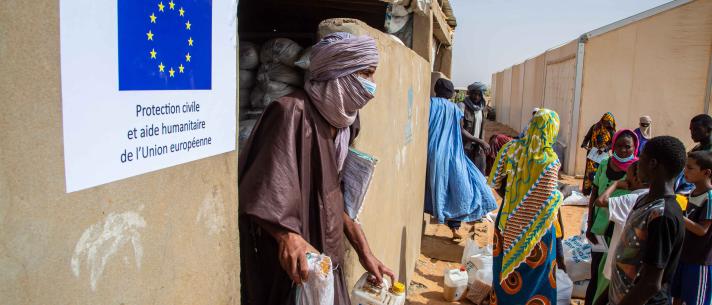The European Union provides needs-based humanitarian assistance to the people hit by human-induced disasters and natural hazards with particular attention to the most vulnerable victims.
EU humanitarian aid is based on international humanitarian principles and as set out in the European Consensus on Humanitarian Aid.
Humanitarian aid is channelled impartially to the affected populations, regardless of their race, ethnic group, religion, gender, age, nationality or political affiliation.
The EU – Member States and EU institutions collectively – is among the leading donors of humanitarian aid in the world.
30 years of EU humanitarian aid
The European Commission has been providing humanitarian aid since 1992 in over 110 countries, reaching millions of people across the globe each year.
The humanitarian assistance funded by the EU is delivered in partnership with UN agencies, international organisations and NGOs.
EU humanitarian aid covers intervention areas such as: food and nutrition, shelter, healthcare, water and sanitation, and education in emergencies.
A large network of Commission's humanitarian experts in over 40 countries worldwide enables close monitoring of crisis situations and relief operations.
The funding for humanitarian aid operations is intended for countries outside of the EU. In addition, the European Commission can also fund emergency support operations to respond to disasters of exceptional scale within the European Union.
|
Since 1992 |
+110 countries |
Presence in +40 countries |
|---|---|---|
|
The EU has been providing humanitarian assistance for over 30 years. |
We have reached millions of people in need across the world. |
We have a field network of over 400 experts and offices in more than 40 countries. |
Humanitarian funding for 2024
As humanitarian needs continue to rise globally, the EU maintains its commitment to support those in need by adopting its initial annual humanitarian budget of €1.8 billion for 2024.
The EU remains a global leading donor
In the past 4 years, EU humanitarian funding has been continuously growing. Notably, in 2022, the EU’s final humanitarian budget saw a 20% rise, up to €2.62 billion, €440 million more than the year before.
Thanks to this additional funding, the EU was able to keep a similar level of funding or to partially increase it for the most important crisis of 2022.
In 2022, practically all the humanitarian funds for Ukraine (up to 95%) came from the reinforcement of the budget received throughout the year, not from the initial allocation.

